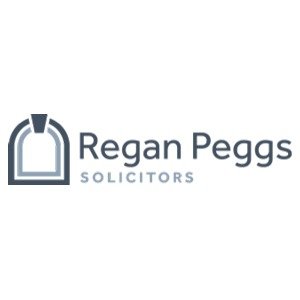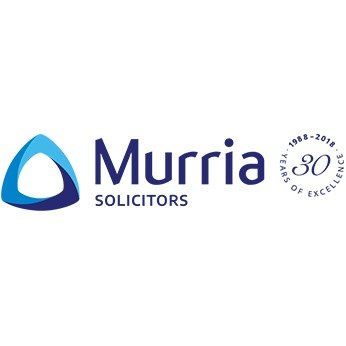Best Corporate Governance Lawyers in Birmingham
Share your needs with us, get contacted by law firms.
Free. Takes 2 min.
List of the best lawyers in Birmingham, United Kingdom
About Corporate Governance Law in Birmingham, United Kingdom
Corporate governance describes the framework of rules, practices, and processes by which a company is directed and controlled. In Birmingham, as throughout the United Kingdom, effective corporate governance is essential for businesses of all sizes, ensuring ethical management, accountability, and sustainable growth. It involves the relationships between a company’s board of directors, its management, shareholders, and other stakeholders. Key principles include transparency, responsibility, fairness, and integrity.
Birmingham is a major UK business hub, with numerous corporations, SMEs, and start-ups operating under national corporate governance regulations and codes. Legal professionals in Birmingham are well-versed in advising companies on best practices, compliance requirements, and dispute resolution in the realm of corporate governance.
Why You May Need a Lawyer
There are several situations in which seeking legal advice on corporate governance is beneficial or necessary. Some of the most common reasons include:
- Establishing a new company and ensuring appropriate governance structures are in place.
- Advising board members on their legal duties and potential liabilities.
- Assisting with compliance with statutory requirements under the Companies Act 2006 and other regulations.
- Managing shareholder relations and resolving disputes between directors and shareholders.
- Responding to allegations of director misconduct or breaches of fiduciary duty.
- Advising on corporate transparency and reporting obligations.
- Helping with corporate restructuring, mergers, and acquisitions to ensure governance standards are maintained.
- Supporting not-for-profit and public sector organisations with tailored governance advice.
Local Laws Overview
In Birmingham, corporate governance is governed by UK legislation, the most significant being the Companies Act 2006. The Act sets out the legal requirements for company formation, management, and administration, including directors’ duties, shareholder rights, and reporting standards. The UK Corporate Governance Code, while mainly applied to publicly listed companies, also influences private and charitable organisations seeking strong governance practices.
Other relevant local and national regulations include the Bribery Act 2010, the Financial Reporting Council’s guidelines, and sector-specific codes. Birmingham city authorities also provide local support and resources for businesses seeking to strengthen their governance models. Ultimately, adherence to these laws ensures that businesses fulfill their legal and ethical obligations to their stakeholders.
Frequently Asked Questions
What is the main law governing corporate governance in Birmingham?
The Companies Act 2006 is the primary piece of legislation governing company operations, including corporate governance, throughout the UK and applies to Birmingham-based businesses.
Are all companies required to have a formal corporate governance policy?
While not all private companies are legally required to have a formal policy, it is considered good practice for companies of all sizes. Listed companies must adhere to the UK Corporate Governance Code.
What are directors' legal duties under UK law?
Directors must act within their powers, promote the success of the company, exercise independent judgment, avoid conflicts of interest, and exercise reasonable care, skill, and diligence.
How can shareholders influence corporate governance?
Shareholders exercise influence through voting rights at general meetings, appointing directors, and raising concerns about management or governance standards.
What penalties exist for directors breaching governance standards?
Directors could face civil or criminal penalties, including disqualification, fines, or personal liability if they breach their legal duties.
How often should a company’s governance procedures be reviewed?
Best practice recommends reviewing governance procedures annually, or whenever substantial changes occur within the company.
What is the significance of the UK Corporate Governance Code?
The Code provides a framework for effective board leadership and company reporting, setting the standard for good governance in UK-listed companies and influencing other sectors.
Do company secretaries have legal responsibilities regarding governance?
Yes, company secretaries ensure compliance with statutory and regulatory requirements and play a key role in supporting the board’s governance functions.
Can a company be held liable for governance failures?
Yes, a company and its directors may face legal consequences, including regulatory action or litigation, for governance failures which lead to financial loss or stakeholder harm.
Is external legal advice necessary for small and medium-sized enterprises?
While not mandatory, external legal advice helps SMEs establish robust governance frameworks, ensuring compliance and reducing the risk of disputes or regulatory issues.
Additional Resources
Individuals and companies in Birmingham seeking guidance can utilise the following resources:
- Companies House - For company registration and compliance information
- The Financial Reporting Council - For governance codes and reporting standards
- Institute of Directors - Offers training, resources, and support for directors
- Birmingham Chamber of Commerce - Provides local business advice and networking opportunities
- Law Society of England and Wales - Find qualified corporate legal professionals in Birmingham
- UK Government’s official website - For access to laws, regulations, and company guidance notes
Next Steps
If you require legal assistance regarding corporate governance in Birmingham, consider the following steps:
- Assess your specific needs or concerns related to governance within your business.
- Consider consulting a qualified corporate governance solicitor in Birmingham who understands local business practices and UK law.
- Collect any relevant company documents or information before your consultation to enable effective advice.
- Review guidance from reputable organisations and regulatory bodies.
- Implement or update governance procedures in line with current regulations and best practices after receiving professional advice.
Taking early action to ensure compliance and good governance can protect your business and enhance stakeholder trust. Do not hesitate to seek legal help if you face uncertainties or risks in your company’s governance arrangements.
Lawzana helps you find the best lawyers and law firms in Birmingham through a curated and pre-screened list of qualified legal professionals. Our platform offers rankings and detailed profiles of attorneys and law firms, allowing you to compare based on practice areas, including Corporate Governance, experience, and client feedback.
Each profile includes a description of the firm's areas of practice, client reviews, team members and partners, year of establishment, spoken languages, office locations, contact information, social media presence, and any published articles or resources. Most firms on our platform speak English and are experienced in both local and international legal matters.
Get a quote from top-rated law firms in Birmingham, United Kingdom — quickly, securely, and without unnecessary hassle.
Disclaimer:
The information provided on this page is for general informational purposes only and does not constitute legal advice. While we strive to ensure the accuracy and relevance of the content, legal information may change over time, and interpretations of the law can vary. You should always consult with a qualified legal professional for advice specific to your situation.
We disclaim all liability for actions taken or not taken based on the content of this page. If you believe any information is incorrect or outdated, please contact us, and we will review and update it where appropriate.














